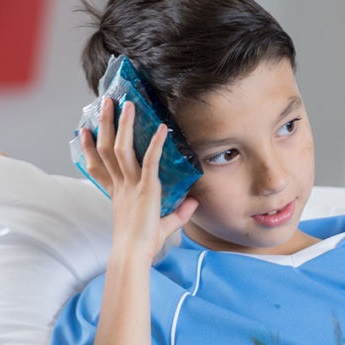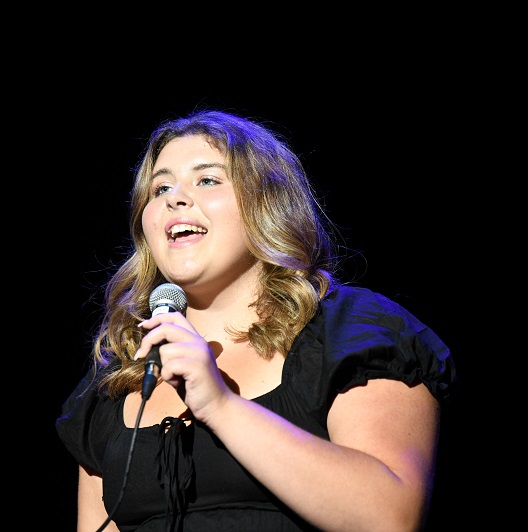7-year-old Soccer Player Suffers Surprise Concussion

October 18, 2023
Seven-year-old Colette was laser focused on the basketball she was chasing on an indoor court in Toms River, New Jersey, in February 2023. She was so intent that she didn’t notice how close she was to an unpadded section of the wall in the court. Colette slammed, running into the wall, face first. She iced her face initially, but as she was seemingly uninjured, she returned to play.
After the game, she went to a birthday party and jumped on a trampoline. She continued to feel fine. But the next morning when she woke up, she complained to her parents that she had a headache and felt dizzy. She was brought to her pediatrician, who recommended she see a pediatric neurologist due to her symptoms.
“It's so difficult to get in with a pediatric neurologist,” says Colette’s mom, Nicole. “We thought it would take months.”
But when she called the office of Nicole Marcantuono, M.D., division chief and pediatric physiatrist at K. Hovnanian Children’s Hospital at Jersey Shore University Medical Center. Colette and her parents met with Dr. Marcantuono within a week.
Colette’s concussion affected her vestibular system, says Dr. Marcantuono, the part of the brain responsible for balance and spatial orientation. She couldn’t balance, and the movement of her eyes was jumpy and jerky.
“It was heartbreaking,” says Colette’s mom, Nicole. “Sometimes I tear up about it because I didn't know how bad it was until that initial visit. With no facial injuries and no pain or other symptoms when she slammed into the wall, we didn’t think anything of her hitting her head.”
Customized Treatment Program for Concussion
Sometimes children with concussions don’t show symptoms right away. “That's one of the things that's challenging about concussion,” says Dr. Marcantuono. “It can occasionally take hours for concussion symptoms to fully develop because the metabolic changes that are happening in the brain take place over a period of time.”
Because every child’s concussion will look different in terms of the symptoms, exam findings and recovery, Dr. Marcantuono says it's important to see a doctor who can individualize a treatment program and has a specialty in brain injury/concussion.
Colette began her treatment program with brain rest—no schoolwork, no physical activity and limited screen time and reading. Over a period of two-and-a-half months, she took medication for her headaches, saw a physical therapist and gradually was reintroduced to activities.
She needed accommodations at school because she initially struggled with the loud, bright and busy environment. “I couldn’t go to the lunch room or to the playground,” Colette says.
Nor could she have friends over to play at her home. Normally active and social, Colette found being inactive and not being able to play with friends really tough, her mom says. “I wasn’t prepared for the emotional side of it,” Nicole says. “Colette would cry a lot. I guess it was being restricted. She was isolated in a sense, and then all the fun things that she was used to doing were taken away.”
Ready to Return to Sports
Little by little, though, Colette started seeing improvements. By summer, she was back to her usual self. This fall, she’ll be back on the soccer field—and maybe the basketball court, too—after getting the OK from Dr. Marcantuono to return to sports.
Once someone has had a concussion, the risk for another is greater, says Dr. Marcantuono, because it takes less force to cause injury.
But now, Colette’s parents are aware of what precautions to take to avoid a head injury and, if she does hit her head again, what to look out for and how to test for a possible concussion.
Next Steps & Resources:
- Meet our source: Nicole Marcantuono, M.D.
- To make an appointment with a pediatric specialist near you, call 800-822-8905 or visit our website.
- Learn more about pediatric rehabilitation.
The material provided through HealthU is intended to be used as general information only and should not replace the advice of your physician. Always consult your physician for individual care.












